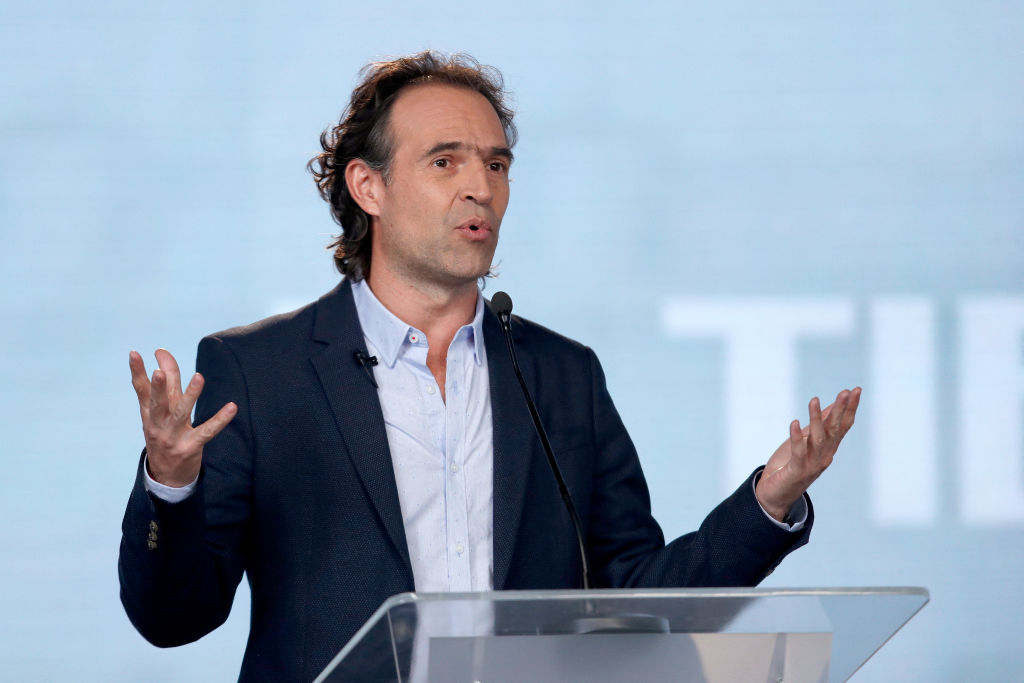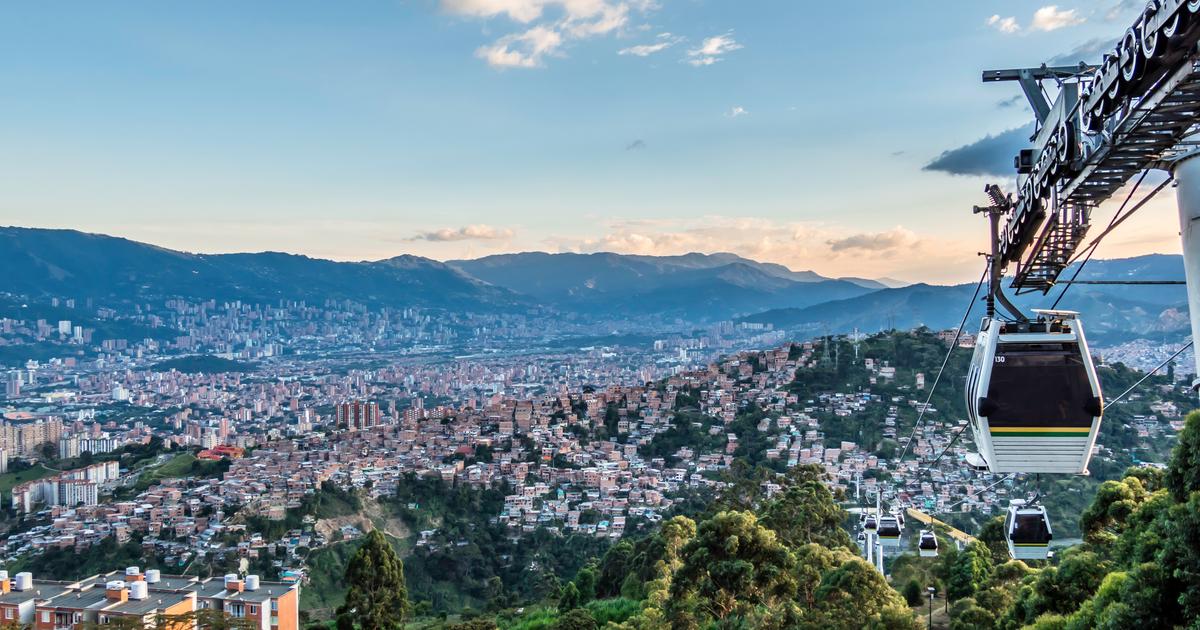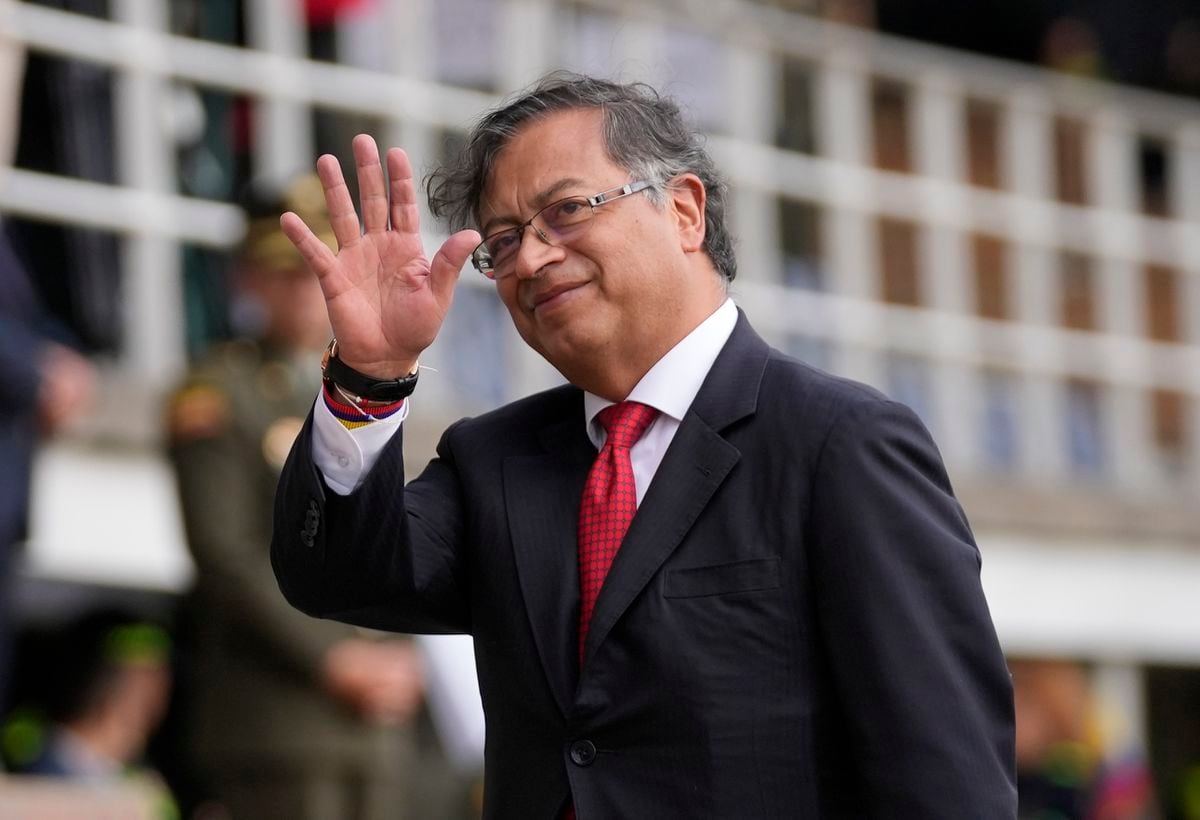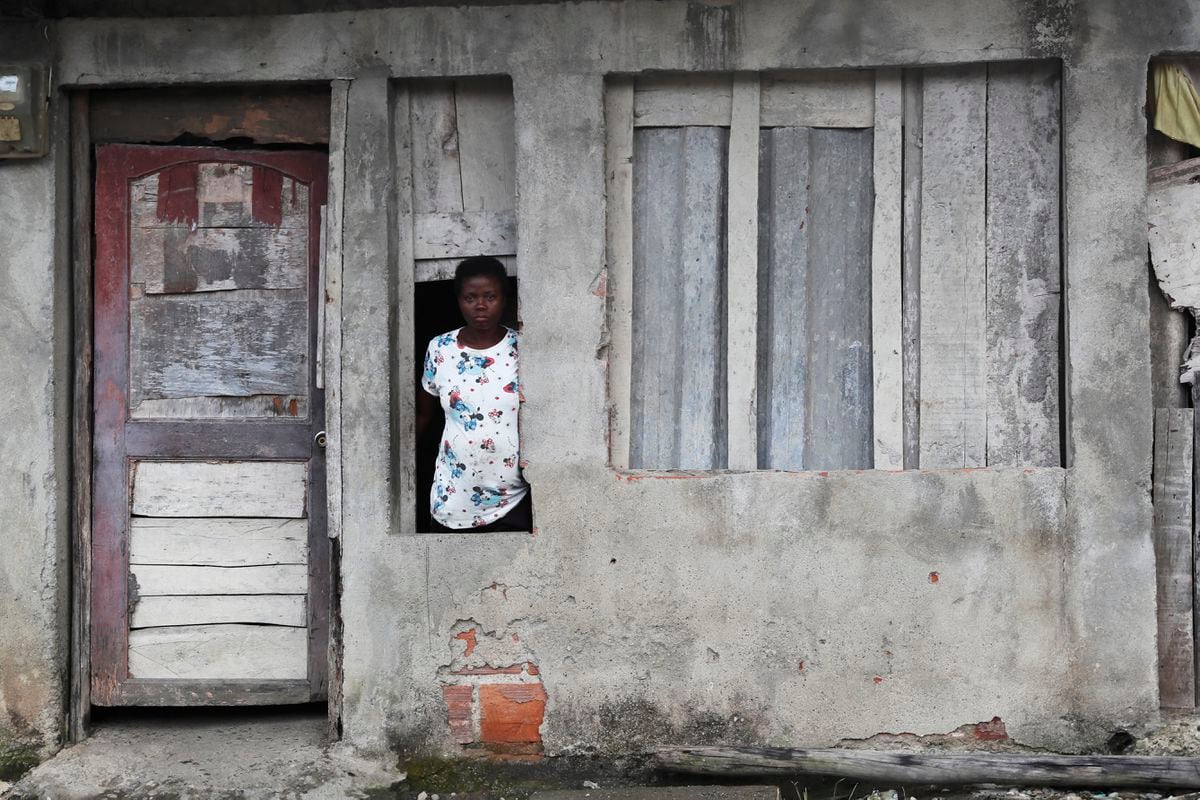Federico Gutiérrez aspires to govern Colombia: who is he and what does he propose?
8:09
(CNN Spanish) --
Federico "Fico" Gutiérrez is the right-wing presidential candidate for the May 29 elections in Colombia.
After a victory among five candidates from the Team for Colombia coalition, the former mayor of Medellín was left with the flags of the conservative sectors and will face other candidates with experience and visibility such as Sergio Fajardo and Gustavo Petro.
Gutiérrez was crowned the winner in the Team for Colombia consultation in which he participated against the conservative senator, David Barguil;
the former mayor of Bogotá, Enrique Peñalosa;
the former mayor of Barranquilla, Alex Char, and the candidate of the Christian MIRA party, Aydeé Lizarazo.
His speech has focused on "preserving democracy and freedoms", as well as security, and has criticized the leftist candidate, Gustavo Petro, for considering that he has a "populist and authoritarian project".
He signed up with a movement endorsed by 1.2 million signatures and claims to be "the people's candidate."
The five key proposals of Federico "Fico" Gutiérrez to be president of Colombia
Presidential candidate Federico "Fico" Gutiérrez celebrates his victory in the coalition consultation for Team for Colombia, on March 13, 2022. (Credit: DANIEL MUNOZ/AFP via Getty Images)
"Fico" Gutiérrez, with local experience and less national visibility
Federico Gutiérrez is the youngest of the presidential candidates in 2022. He is 48 years old, has long hair, speaks with a more pronounced and accelerated paisa (Antioquia) accent than his contender Sergio Fajardo, also from Antioquia, prefers more informal clothing and looks like a medal for good behavior his management in the Medellín Mayor's Office, in which he finished his term with 82% favorability, according to the Invamer survey.
From his mayor's office, he highlights that he persecuted "bandits" and criminal structures that threatened the security of the city.
advertising
He was born in Medellín, Antioquia, in November 1974. He grew up in Belén —a lower-middle class neighborhood of Medellín—, studied Civil Engineering at the University of Medellín and is a specialist in Senior Management and Political Science at the Universidad Pontificia Bolivariana.
His political career began in the Medellin Council in 2004, where he worked closely with then Mayor Sergio Fajardo.
He was re-elected to be a city councilman until 2011 and, in 2015, he was elected by the movement of signatures We Believe, as mayor of his city for the period 2016-2019.
He won with some 246,000 votes.
With that experience at the local level, he reached the consultation, in which he obtained 2.1 million votes and hopes to advance in the first presidential round.
"He is a more local figure and, of course, he has less recognition at the national level than Sergio Fajardo already has today," Patricia Muñoz, director of Postgraduate Studies at the Javeriana University's Faculty of Political Science, told CNN en Español.
Although this recognition could work against him when it comes to attracting votes, Muñoz says that it is an opportunity to "build himself" as a candidate.
"Federico is a little-known candidate at the national level," Muñoz said.
"He still has a way to exploit this, because it's better not to be known than to have a negative image."
Muñoz adds that "with that support from the right-wing parties and from [former president] Álvaro Uribe's party, he can reach a step to the second round."
And in that scenario, taking into account the example of 2018, he would have more chances of winning the presidency, since many sectors would unite against Petro, according to analysts.
Meanwhile, in his appearances in recent presidential debates, the candidate has recognized the proposals of other candidates from the center and from the right —"I am going to get the best out of each sector and each person in Colombia," he says— but has rejected those from the left, for considering that they are a "threat" to the country.
Fico, as he is popularly known, has been presented as the nemesis of Gustavo Petro.
"There has been a total absence of proposals and it seems that his campaign is going to focus on the negativity or the fear that Gustavo Petro can arouse among the voters and then on the debate and the dialogues that we are going to see in the future, rather than deepen in some proposal or allusion, is [saying to Petro] 'you generate fear,'" said analyst Patricia Muñoz.
Who is Gustavo Petro, the leftist candidate who is trying for the third time to reach the presidency of Colombia
(Credit: DANIEL MUNOZ/AFP via Getty Images)
Fico, with uribismo
"Fico" Gutiérrez united various sectors of the right and center-right around him.
But his opponents have compared him to Iván Duque, a politician with no experience in elected public office and who came to the presidency riding the horse of Uribismo.
"They can make it up, they can cover it up on one side, on the other, but Colombia cannot continue down the path that is coming. He is Uribe's version 2022," said Sergio Fajardo, a candidate for the center, in a presidential debate organized by regional media on March 17.
"Fico" Gutiérrez, backed by traditional parties, denies having received Uribe's direct support and points out: "If the Democratic Center wants to support me, welcome," he said last Thursday, in a presidential debate.
Presidential candidate Federico Gutiérrez closes his campaign for internal consultations on March 5, 2022, in Envigado, Antioquia. (Credit: JOAQUIN SARMIENTO/AFP via Getty Images)
On March 14, one day after the consultations, the official candidate of the Democratic Center, Óscar Iván Zuluaga, resigned from the Democratic Center's candidacy and said that in a personal capacity he would support Gutiérrez's campaign.
But with a high degree of unfavorability, former President Álvaro Uribe himself has recognized that his support could subtract instead of add to this campaign, even more so after the government of Iván Duque, who after four years has had high numbers of disapproval.
"Any candidate I approach, right there they say 'Uribista' and put a stigma on him," former President Álvaro Uribe said last week.
"I was even sorry that Óscar Iván [Zuluaga] went out with me on walks and I told him so.
"That's why I want to do a task now applying the principle here: He who doesn't get in the way does a lot," Uribe told reporters.
"Ivan Duke 2.0"
File photo. The president of Colombia, Iván Duque, with the mayor of Medellín, "Fico" Gutiérrez, at the demolition of the Mónaco building, where drug trafficker Pablo Escobar lived, on February 22, 2019. (Credit: JOAQUIN SARMIENTO/AFP via Getty Images )
In a post-FARC and post-pandemic Colombia, the political debate in the country focused on security in the cities, the fight against corruption, poverty and other issues that "did not favor the Democratic Center," he told CNN en Español Esteban Salazar, coordinator of Democracy and Governance of the PARES Foundation.
"Today what we see from Federico Gutiérrez, who is a kind of Iván Duque 2.0, is the same electoral campaign dynamic, but without the direct support of President Álvaro Uribe and the Democratic Center," said Salazar.
For Salazar, who assures that Uribismo is in decline, the momentum of Gutiérrez and the right-wing campaign is very low despite the 2.1 million votes with which the candidate won.
In the so-called Great Consultation for Colombia in 2018, which brought together three candidates from the right —Iván Duque, Marta Lucía Ramírez and Alejandro Ordóñez—Duque won with just over 4 million votes, and the consultation in general collected 6.1 million. of votes.
In the 2022 Team for Colombia consultation, with five candidates participating, this sector obtained 3.9 million.
The consultation of the left exceeded 5.5 million votes.
"Federico Gutiérrez was the experiment of Uribism in this post-Uribe dynamic to see how much people continue to be right-wing without being Uribe," said Salazar.
But on the other hand, according to Salazar, one advantage that Gutiérrez gained from these consultations is that he was able to make himself known in sectors where the right-wing was voted on March 13, and that he has the support of traditional parties that have what is known as as a tough political machine to face the first round votes.
"The electoral political machinery weighs more than really the opinion vote," says Salazar about Fico's candidacy.
A candidacy that rose in the polls
Although for the most radical sector of Uribismo Fico Gutiérrez is a candidate that is too "lukewarm" —which is a concept used to describe candidates without clear political positions on the ideological spectrum—, Gutiérrez could be the candidate who maintains the
status quo
of the military forces and the Police, an issue of great importance for the right, especially after the protests of 2019 and 2021, and continue with the strong-arm line of Uribismo, which has largely governed or determined the country's electoral system in recent years. 20 years.
"Because there is no one else who represents those flags at this time," Salazar points out.
The truth is that the intention to vote for "Fico" Gutiérrez has risen, going from 29%, in August 2021, to 36%, in February 2022, according to an Invamer-Gallup survey.
And with several traditional political groups interested in stopping Gustavo Petro, Federico Gutiérrez could be the electoral surprise for the 2022-2026 Presidency.
The support of the Liberal Party
After weeks of speculation and negotiations following inter-party consultations, Fico Gutiérrez officially received the support of the Liberal Party (one of the traditional parties with the greatest presence in the newly elected Congress).
Liberalism had also had rapprochements with the candidate Gustavo Petro, but former president César Gaviria, leader of the party, confirmed on April 27 his support for Gutiérrez's campaign.
"After analyzing and assuming the programmatic agenda of the Liberal Party, Federico Gutiérrez is our presidential candidate," Gaviria said.
That not only gives Fico Gutiérrez's campaign a political boost, but also puts the so-called machinery, or party structures, to work based on that candidacy.
MEET THE MAIN CANDIDATES:
Who is Gustavo Petro?
Who is Federico "Fico" Gutierrez
Who is Rodolfo Hernandez
Who is Sergio Fajardo?
This content was published on March 23 and updated on May 26
Colombian Elections



/cloudfront-eu-central-1.images.arcpublishing.com/prisa/QRJZ2KMN4RDBLB5BUKH6TLKF6A.jpg)




